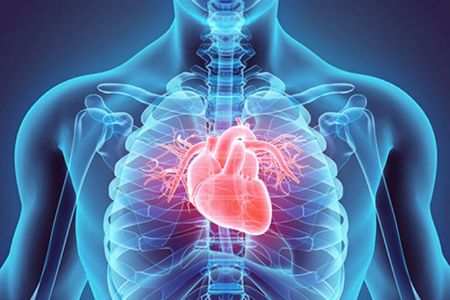
-
Published: 29 August 2021

Atherosclerosis is the most common cause of death worldwide and is one of the chronic diseases responsible for the development of heart attacks and strokes.
Atherosclerosis occurs primarily because of harmful cholesterol deposition and the accumulation of inflammatory cells in the inner wall of the vessels, resulting in subsequent accumulation of atherosclerosis plaques.
According to a new study published in the journal Netscher, researchers in Switzerland from the Universities of Vienna and Lausanne, in collaboration with colleagues from the University of Cambridge, England, discovered that the protein called "A Proclination Binding Ligand" provides basic protection against the formation of atherosclerosis.
Using animal models, researchers found that April's protein removal exacerbates arteriosclerosis in mice, and were also able to show that the injection of April-equivalent antibodies gives protection against arteriosclerosis.
In this context, the first author Dimitros Tsyantulas says: Our original hypothesis was that April's ability to regulate the properties of bleach lymphocytes - which play an essential role in atherosclerosis - protects against the formation of atherosclerosis, but this hypothesis turns out to be wrong. So we turned to another, less well - known, non-immune characteristic of April, which is associated with the so-called Perlican protein.
The authors also discovered that April is produced in large quantities by the arteries themselves, and there it binds to the Perlican protein, a large molecule, which is an integral part of the inner layer of the arteries.
It is reported that Perlican protein has been shown to promote harmful cholesterol deposition in the vascular wall, but the new study demonstrated that April's protein managed to reduce Perlican protein, thereby preventing the development of arteriosclerosis in mice.
The authors also studied the importance of the "April" protein in solid blood vessel diseases in humans, using various methods, developed by Pascal Schneider, a senior researcher at the University of Lausanne and co-author of the study, where they discovered another previously unknown form of "April" in human blood, which they called "nc-APRIL."
It is reported that by analysing more than 3000 patient samples, scientists were able to show that blood levels in nc-APRIL predict the risk of death from cardiovascular disease.
This prediction is a strong indication that the association of the April protein with the Perlican protein also plays an important role in cardiovascular diseases resulting from human arteriosclerosis.
